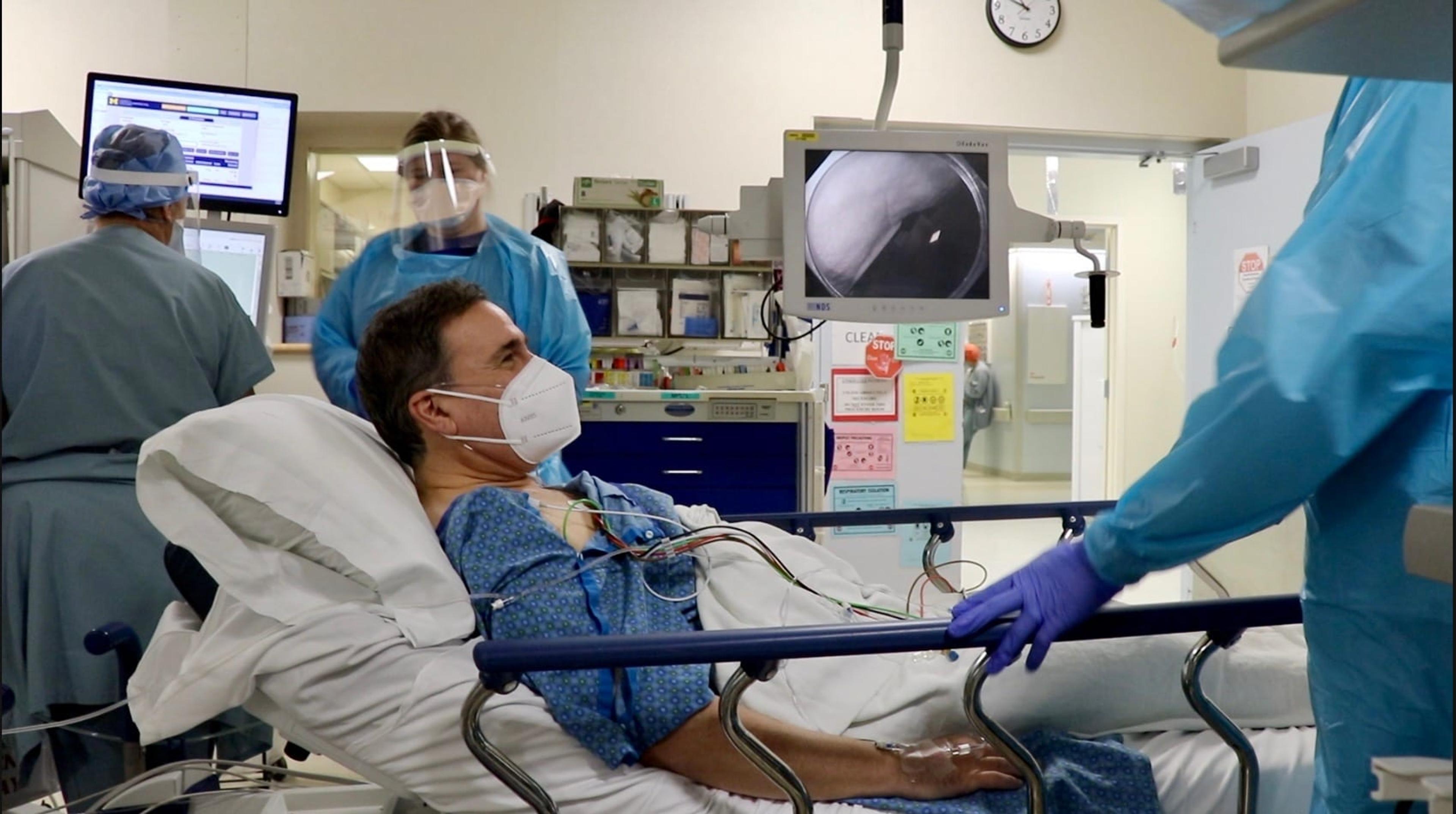Nearly 150,000 people will be newly diagnosed with colorectal cancer this year. This is the third most commonly diagnosed cancer in the US, and the incidence is rising in people younger than 55.
But colorectal cancer is highly treatable if caught early, and the best tool for early detection is a colonoscopy screening. Some people are uncomfortable with the idea of a colonoscopy.
To help ease concerns, Dr. James Grant, chief medical officer at Blue Cross Blue Shield of Michigan, documented his own colonoscopy screening and shared it in this video.
Dr. Grant says the first step is to get a colonoscopy order or a referral from your primary care physician. A gastroenterologist or a colorectal surgeon will perform the colonoscopy procedure. Once your procedure is scheduled, you’ll get instructions on how to prepare for it.
Preparation for the procedure usually begins one or two days beforehand with some dietary changes. The day before the procedure, you will only have clear liquids like water, black coffee or tea, broth, or fruit juice without pulp; and jello. However, red or purple juices and jellos are not allowed. This is because the colors can skew the results during your exam.
Your preparation instructions will give you a specific time to begin taking the prep solution. There are many different prep solutions, and each requires a good amount of water in addition to the solution. This helps to clear out your system, which is necessary for the doctor to have a clear view of the bowel.
Once you’ve begun the prep, Dr. Grant recommends staying close to a bathroom. You will likely make many trips there over the next several hours.
Next, it’s time for the procedure. Dr. Grant’s procedure took less than two hours from the time he checked in to the time he was wheeled out. Most people will feel alert and ready to eat once the procedure is over. Because you will have had some anesthesia, Dr. Grant recommends staying close to home the rest of the day.
Finally, when it’s time for you to have your colonoscopy screening, don’t put it off.
As of July 1, 2021, Blue Cross Blue Shield of Michigan and Blue Care Network will cover colorectal screenings for most members beginning at age 45 to align with the recommendation of the U.S. Preventive Services Task Force. For more information, click here. Related:

